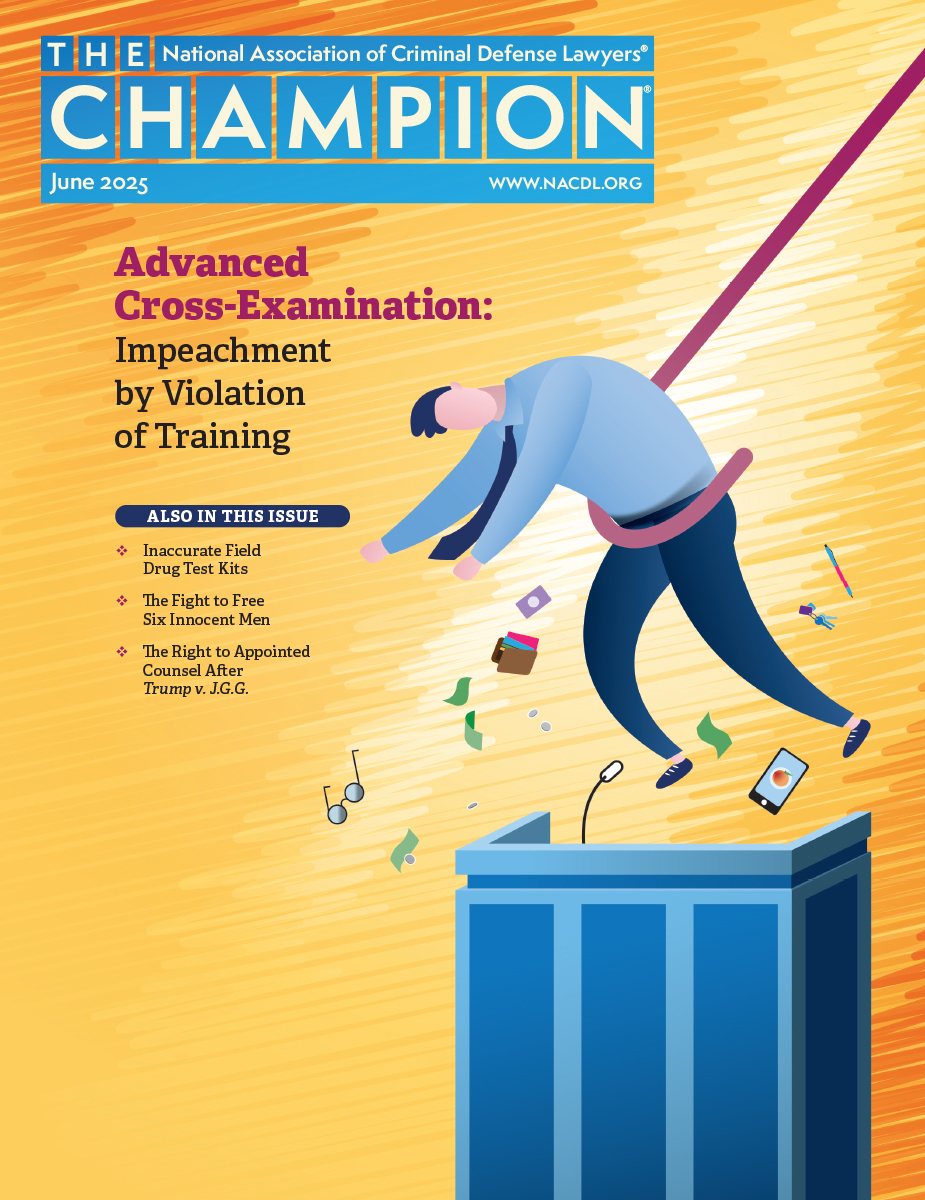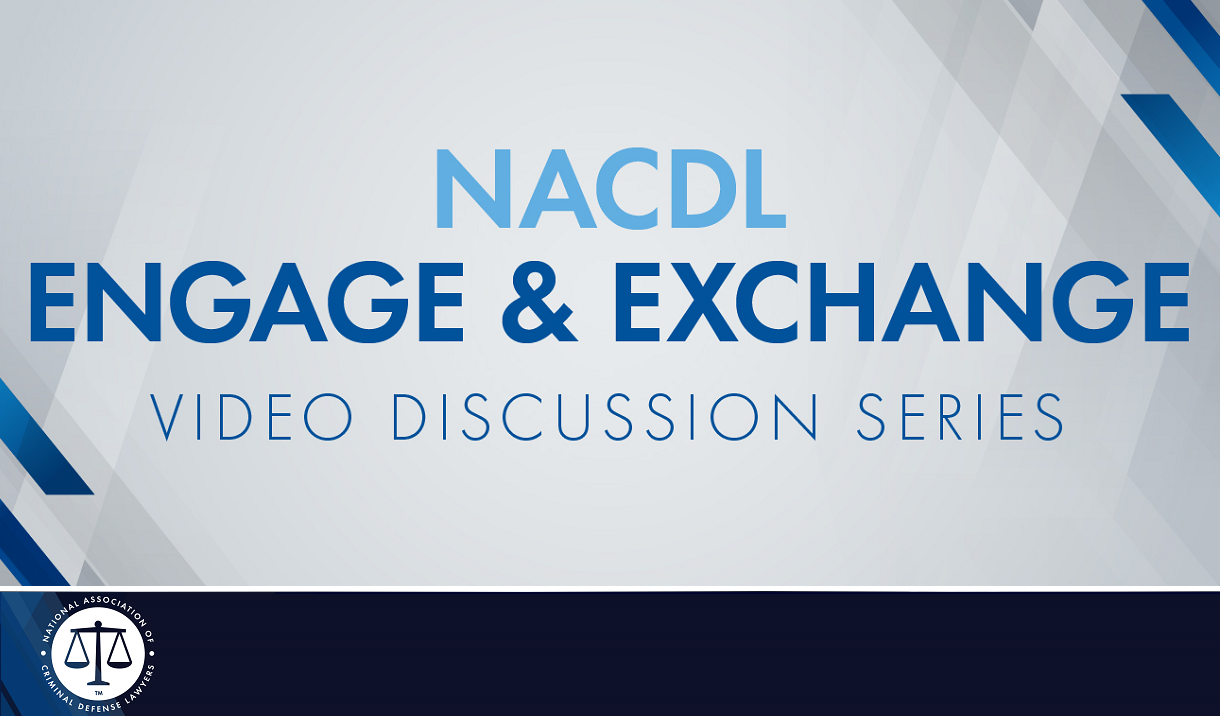Explore keywords to find information
RECENTLY ADDED & UPCOMING
-
The Champion

June 2025
Did a prosecution witness fail to follow training procedures when conducting the case investigation? Larry Pozner discusses the chapter bundles for impeaching this witness.
-
Amicus Brief

Moore and Mansell v. United States
Petition for a Writ of Certiorari, United States v. Moore and Mansell
-
News Release

News Release ~ National Guard in Los Angeles
Nation's Criminal Defense Bar Condemns Executive Overreach, Deployment of National Guard in Los Angeles – Washington, DC (June 9, 2025) – The National Association of Criminal Defense Lawyers (NACDL) condemns the decision to deploy the National Guard in Los Angeles in response to protests. NACDL opposes this abuse of power and calls to end violence against protestors and the criminalization of free speech.
-
Event

2025 Albert J. Krieger Annual Meeting of NACDL
"Defending Crimes of Violence"
LOCATION: Minneapolis Marriott City Center
DATES: July 9-12,2025
CLE Credits: Approx. 15 Credits -
Webinar

How to Use Data in White Collar Cases [Engage & Exchange]
WHEN: Wednesday, July 16, 2:00-3:30pm ET / 11:00am-12:30pm PT
CLE CREDIT: not available
COST: Free









